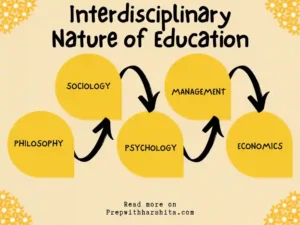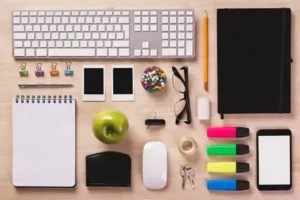Effective Study Methods & Education Tips for Academic Growth

Effective study methods are the secret sauce to academic success. Trust me, I’ve tried to power through with sheer willpower—cramming at 3 AM with a gallon of iced coffee and a prayer. Didn’t work. At all. But over time, I learned how to study smarter, not harder. With a few tweaks to my habits, I started seeing better results—and fewer meltdowns during finals week.
So, let’s talk about how you can level up your study game, shall we?
1. Get into Active Learning—It’s a Game Changer
Active learning isn’t just some buzzword tossed around by academics—it’s the real deal. And it’s so much more than rereading your notes for the hundredth time. Active learning is all about engaging with the material, really thinking about it, and testing yourself.
Here’s a tip: Try summarizing the material in your own words. When I first started doing this, I was like, “This sounds like a lot of work for something I’ve already read.” But I promise, it’s one of the most effective study methods I’ve found. The effort forces your brain to digest the info, turning it from “Oh, I kinda remember that” into “I got this” when test day rolls around.
One method I swear by is SQ3R—Survey, Question, Read, Recite, and Review. Think of it as your study checklist. It forces you to actively engage with the material in ways you probably haven’t before. At first, it felt like I was taking a test while reading. But eventually, I realized my brain was absorbing and retaining way more.
2. Build a Study Schedule Like Your Future Self Is Counting on You
Time management. Y’all, I’ve had a rough relationship with this one. I mean, who hasn’t, right? I’d start out the semester all “I’m gonna crush it,” then blink, and suddenly it’s the night before the big exam, and my notes look like a paper tornado hit them.
That’s where a solid study schedule comes in. It sounds boring, but let me tell you—if you want to actually remember what you learned and still have time to breathe, it’s a game changer.
I started by setting up small, realistic goals for each week. I’d focus on one subject per study block and leave room for breaks. Over time, I learned that when you pace yourself, you actually retain the material, and you won’t end up re-reading a 40-page chapter the night before the test. (True story: my old panic-stricken self used to attempt that.)
So, create a study calendar and stick to it. Plan for breaks too. When I say breaks, I mean real ones. No sneaky social media scrolling. Focus on giving your brain a chance to reset.
3. The Pomodoro Technique—Because Even the Energizer Bunny Needs a Break
I’ve got a friend named Sarah who’s obsessed with the Pomodoro Technique. She swears by it, so I thought I’d give it a go. At first, I was like, “Okay, 25 minutes of studying and then a 5-minute break? That’s way too short to get anything done.”
But fast forward a couple of weeks, and I was converted. Here’s the thing: our brains can’t focus for hours on end without crashing. (Seriously, if you can, you’re a robot, and I want your batteries.) By breaking things into manageable 25-minute sessions, you’ll find your focus actually improves.
Every 25 minutes, take a quick break. I mean it—no “just one more paragraph” nonsense. Stretch, get a snack, take a walk. It makes a huge difference. Plus, you’ll be amazed at how much you get done in such short bursts. And for the love of studying, stay off your phone during your sessions.
Pro tip: After every four Pomodoros, take a longer break. You’ll feel like a studying ninja.
4. Mnemonics—Memory’s Best Friend (Seriously)
Okay, real talk: my first herb garden died faster than my 2020 sourdough starter—RIP, Gary. But it taught me a lesson. You need a plan for remembering stuff, or you’ll be scrambling for details like I did with my plants. The answer? Mnemonics.
Mnemonics are like cheat codes for your brain. They simplify complex info into something memorable. For example, when I was studying biology, I used the acronym “PEMDAS” to remember the order of operations in math. Parentheses, Exponents, Multiplication, Division, Addition, Subtraction.
But it doesn’t have to be that basic—get creative. Create silly phrases, or use weird images. My friend Ashley still remembers the phases of the moon because she made up a rap. Sure, it’s absurd, but hey—it worked.
And for visual learners? Use diagrams, mind maps, or flashcards. Sometimes a picture really does say a thousand words.
5. Teach Someone Else—You’ll Be Surprised How Much You Learn
If you want to really cement what you’ve learned, try teaching it to someone else. I know, it sounds a little like a “mastermind” move, but hear me out.
I’ve had my fair share of “study buddies.” One time, I explained the entire history of World War II to my roommate—who had zero interest in history—just because I needed to talk through the material. And guess what? It worked. She didn’t remember half of it, but I sure did.
By explaining a concept to someone else, you’re forced to clarify your understanding. You’ll catch mistakes you didn’t even know you made. And teaching others gives you that sweet validation when they say, “Oh, I get it now!”
6. Eliminate Distractions—Seriously, You’ve Got This
You’ve probably heard this one a million times, but I have to stress it: distractions are the worst. And I’m guilty of them all—phone, social media, Netflix, random “I’m just gonna check the weather” breaks. But the truth is, distractions are like kryptonite to your study efforts.
Find a spot that’s quiet, set up your study materials, and commit to the task at hand. I learned this the hard way when I tried studying in a café once and found myself watching a dog chase a pigeon for 20 minutes. (I mean, it was pretty entertaining, but not productive.)
Turn off your phone, close tabs that aren’t related to the task at hand, and keep your space clean. This helps trick your brain into thinking, “Okay, time to focus.” And once you stop bouncing between apps and random thoughts, you’ll find your concentration soars.
7. Take Care of Yourself—Your Brain Needs Fuel Too
If you want to study well, you’ve gotta treat your body right. Trust me, I learned the hard way after weeks of surviving on granola bars and caffeine. My brain was like, “Please, no more.”
Sleep. Eat. Exercise. The basics are key. If you’re running on fumes, your brain won’t absorb much, no matter how many hours you spend hunched over your notes. Make sure you’re getting at least 7-8 hours of sleep—your brain will consolidate everything you’ve learned while you rest.
And about that exercise? It doesn’t have to be anything wild. Even a short walk around the block helps get blood flowing and clears your mind. You’ll come back to your studies feeling refreshed.
8. Reflect and Adjust—You’re Always Evolving
Alright, here’s the kicker: effective study methods aren’t static. They evolve. Just like how my first attempt at keeping a succulent alive ended in a very dramatic “funeral” for poor Diego (he was a cactus, y’all), your study methods will need adjustments as you go.
Evaluate what’s working and what’s not. Write it down. Be honest with yourself. This process doesn’t have to be all formal or fancy—just reflect, tweak, and move forward. You’re not always going to get it perfect on the first try (trust me, I’ve been there).
If a certain method feels off or isn’t yielding the results you want, don’t be afraid to try something else. That’s the beauty of learning—it’s a personal journey.
Wrapping Up
Effective study methods aren’t about memorizing every fact or pulling all-nighters (unless you’re a fan of burnout—don’t do it). It’s about finding what works for you. Active learning, making a schedule, taking breaks, and using mnemonics are all strategies that will help you retain information and feel more confident when test day arrives.







